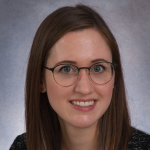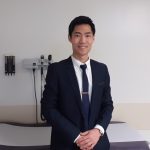2020 – Dr. Jason An
Dr. Jason An completed his Bachelor of Science (Hons) with Distinction, at the University of Toronto. Following university, he went to medical school in Calgary and then completed a residency in Internal Medicine in Edmonton. Here, he discovered an interest in working with complex undifferentiated patients, which prompted him to pursue a Rheumatology fellowship at McMaster University.
His clinical interests span the autoinflammatory and immune dysregulation diseases, most of which are genetically driven. Diagnosis of such conditions can be challenging, particularly when gene panels are (often) unable to identify causative mutations. His research therefore focuses on analyzing the exomes of these patients to identify novel genetic variants underlying their immune dysregulation. Through this Fellowship and beyond, he hopes to strengthen collaborations between the naturally related fields of rheumatology, immunology, and genetics. With the increasing integration of genomic technologies into the rheumatic diseases, he also hopes to promote genomics education in rheumatology training.



